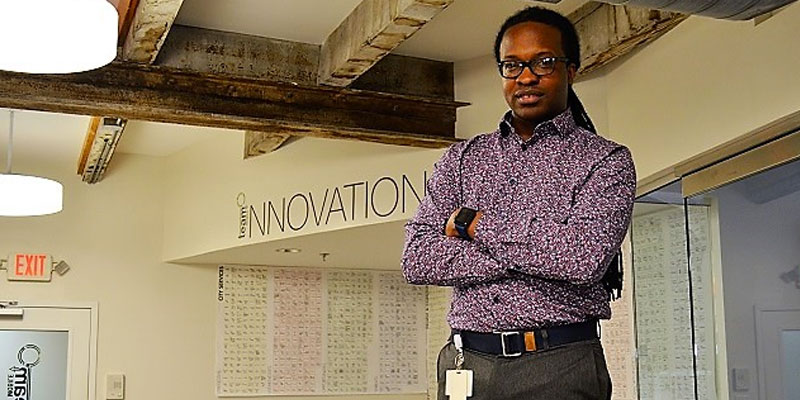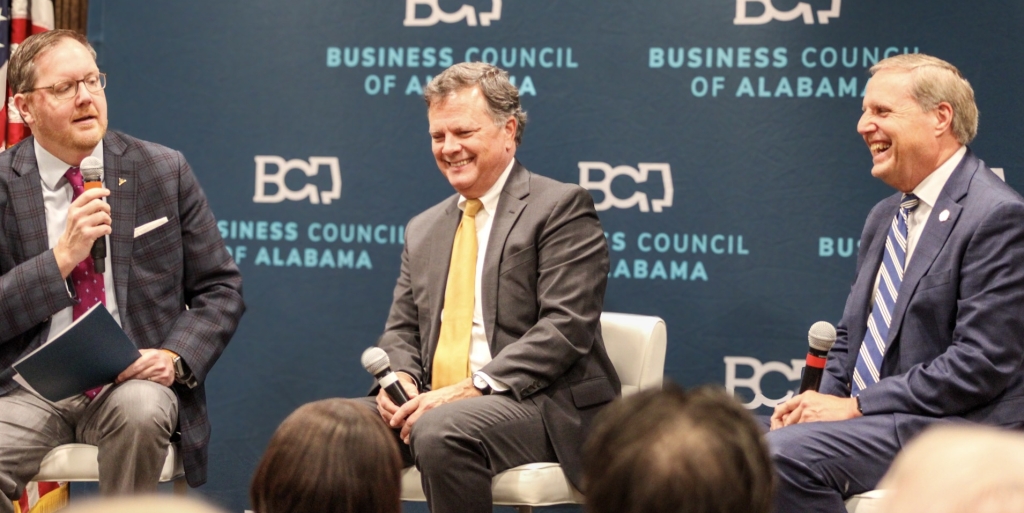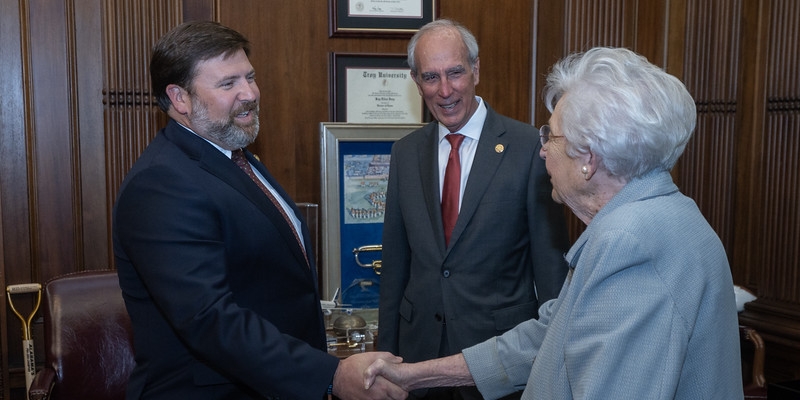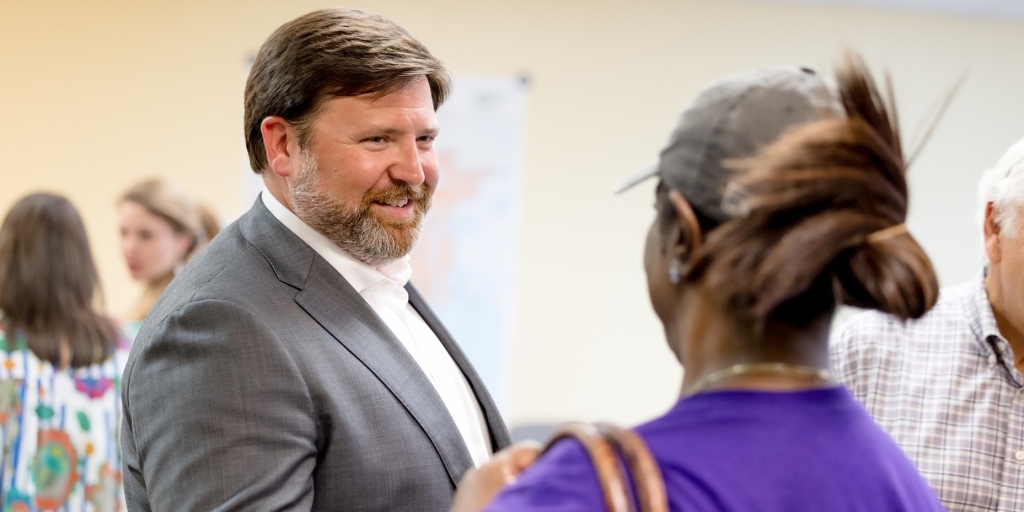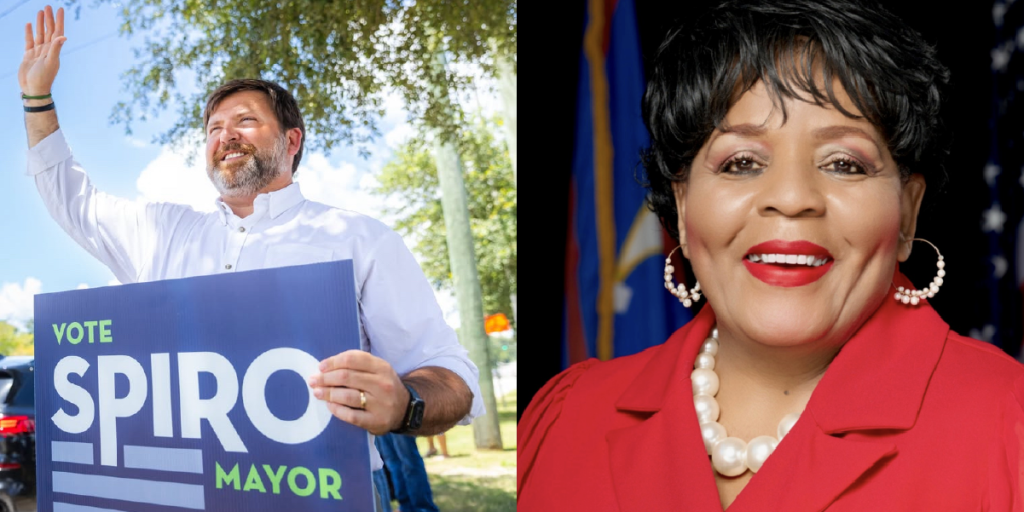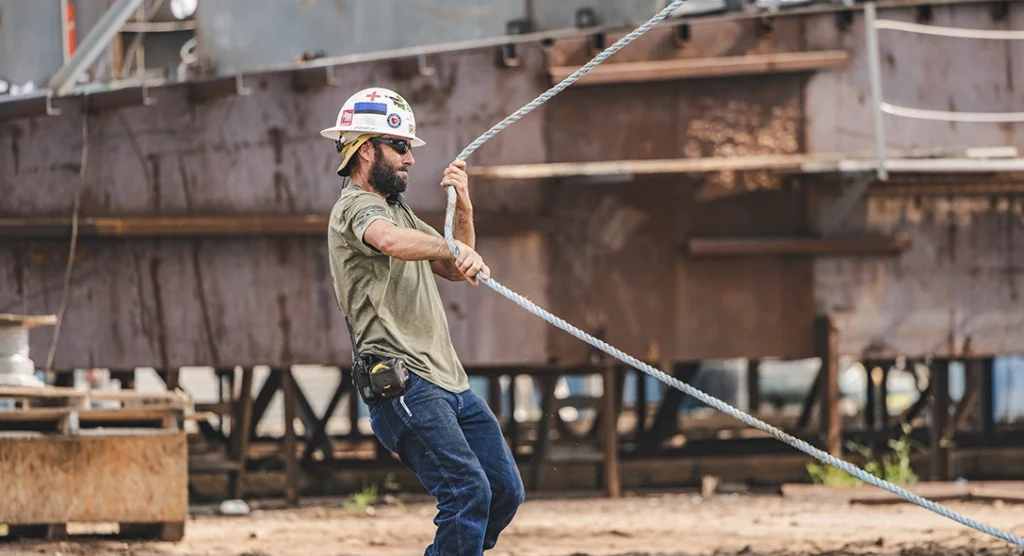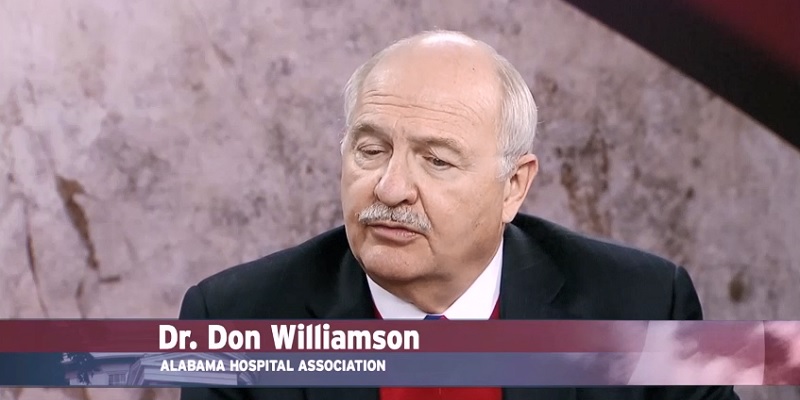Sometimes big change comes through small innovations.
That’s the idea behind the Mobile Innovation Team, or i-team.
Terrance Smith is the i-team director, leading a small, diverse group bringing new ideas to a city that values its history.
“Our role in the city is to identify inefficiencies within the city government and to bring fresh perspective,” Smith said. “We like to say we look at old problems new ways.”
Like other cities across the state, Mobile is relying on African-Americans in positions of innovation leadership.
For Smith, it was a role he didn’t envision for himself.
He began life after college working with people who had disabilities. That led to work in education designing learning programs and then working with at-risk high school students.
Smith would often run into Mobile Mayor Sandy Stimpson at community service projects and the two struck up a rapport.
“He said, ‘You need to come move into the city,’ and I laughed about it and said, ‘You guys have way too many problems inside the city,’ and he said, ‘That’s why we need you,’” Smith recalled.
Smith and his wife moved to Mobile and he ran into the mayor at an event the same day the moving trucks were scheduled. Not long afterward, the mayor offered him a job with the i-team, which was funded by a grant from Bloomberg Philanthropies. That grant expires soon, but the i-team will continue as a city-supported entity.
“I believe in this city. I believe in its people. Which is why I wanted to come back and not live on the outskirts but live in it, be a part of it,” Smith said. “If I’m going to make that commitment to be in it and be a part of it, then I also must make the commitment to be at the center of the problems, at the center of the solutions.”
For the i-team, the solutions are innovative.
“People hear ‘innovation,’ they automatically think of technology, but we’re more about processes and the social aspects of it,” Smith said.
Those solutions include city departments tackling blight using creative tools like Instagram and geotagging that can record, map and create a database – or “blight index” – so problems can be more easily addressed.
Smith said neighborhoods are targeted based on that data to stabilize those in most need and make the city’s efforts more efficient.
Next is streamlining the city’s planning, zoning and permitting processes to make it easier for those looking to make improvements in the city.
Once an area is made more attractive for renovation, there should be no barrier preventing people from wanting to improve it, Smith said.
“Now when we have the inventory of blighted structures and we have this interest of people wanting to purchase properties, now we have the obligation to make sure they can build quickly and efficiently and build more effectively,” he said.
Progress isn’t always easy in the Port City.
“We are an old city and we have done things the way we’ve always done them. Sometimes that can be very hard to release,” Smith said. “It’s incumbent on us to understand ways to have difficult conversations, ways to give and receive feedback.”
For the i-team, those ways are through sticky notes. The i-team solicits ideas, issues and solutions from the public using the same pieces of paper many people use for grocery lists.
“Their voices are all represented on our sticky notes,” Smith said. “We like to code all of the notes that we take in. There is a method to a sticky note.”
There is only so much information one can put on a sticky note. Writing an idea on a note prevents disagreements one might find in more conversational approaches. It also forces people to make their points succinctly.
But one thing Smith finds with the sticky note process is most surprising.
“It’s amazing that we may have a young African-American male over here and an affluent white female over here and they’re saying the same exact thing,” he said. “But when they’re quiet enough and they’re spending their time being thoughtful enough about their responses without having to defend their positions, we realize that we all want the same thing, we’re just saying it different ways.”
The hundreds of sticky notes in the i-team offices across from Mobile City Hall represent hundreds of voices with a stake in Mobile. Some of the writers don’t live in the Port City but depend on it for jobs and entertainment. Smith said their voices matter, too. Solutions must address the real needs people are identifying.
“We’re not creating these solutions in a vacuum,” he said. “We like to say if we make the best hamburgers ever made but the people want pizza, we’ve failed.”
The greater goal of the i-team’s work is to reverse Mobile’s loss of population in recent years. By addressing blight, investments in properties are made more attractive. By increasing investments in properties, neighborhoods improve and more people move in. When more people move in, schools improve. Improved schools bring more people to the community.
Smith said the i-team takes the simple approach of assessing where Mobile is, what problems are in the way and what Mobile in the future will look like with those problems resolved.
“I’m very optimistic about the future,” Smith said. “I would not be here if I wasn’t.”
While it’s important to acknowledge shortcomings, Smith said it’s just as important to note the successes.
“We don’t do ourselves enough justice talking about the great things that are happening in this city,” he said. “You can speak highly of what’s happening inside the city but also be realistic about where we are.”
In other words, the old and the new can coexist.
“We’re still an old city and we still like to do things our way,” he said. “But we’re quickly understanding that we can do things our way, adapt new processes and improve the system itself.”
(Courtesy of Alabama NewsCenter)




